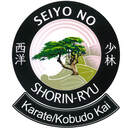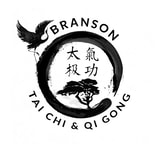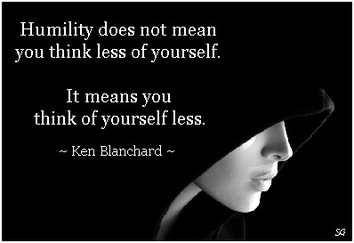 "There are many people out there who accomplish a little bit and decide that they are an expert. Humility is knowing what you don’t know." ~ Mark Manson (The Psychology of Life) In the martial arts world, I have noticed a trend with different practitioners and karate instructors. There appear to be two types of people, type A and B.
Type A, are the people who have a big mouth, who regularly talk about the things they have accomplished, they exaggerate their success and point out their trophies and belt ranks. Type A demands attention from those around them. They often dole out their sage wisdom to anyone and everyone who will listen. Then there is Type B, who downplay their successes or doesn't even mention them. Type B often admits when they don't know an answer, they aren't afraid to say when they make a mistake. They ask questions and learn from those in ranks below them and ahead of them. They regularly examine their own weaknesses and strive for constant improvement. They say very little, but demonstrate much through their actions. Although they may hold a very high rank in their primary martial art, they could be seen strapping on a white belt to learn a second, third or fourth martial art. The trend appears to be that the Type A's are only moderately successful in their martial arts. They may have had some accomplishments, but they had never achieved true master status or respect within the martial arts community. Where the Type B's are usually found to be legitimate masters in their art often with very high ranks. Not only were Type B's successful in their primary martial art, but in other arts as well. The Type B's had climbed to very peak of the martial arts community and achieved great respect from those around them. Taking on a type B attitude, pun intended as reference to the Beatitudes, is necessary for true success. This humility separates the wheat from the chaff. If you look through history and even the present, the greatest martial artists all have a humble spirit. Although many may not be widely known, they are at the top of their craft. They are male and female martial artists that have great knowledge, amazing levels of skill, true passion for their art and an ability to share their wisdom with others in ways that make their students passionate about the martial arts. Perhaps you don't have a deep desire to be a life-time martial artist. You can take these "Type B" traits and be a leader in any field, trade or industry. In summary, those traits are:
2 Comments
It may sound like the lead in for an email in your Spam box, but you really can change your life in 30 days. The secret is selecting a single, meaningful change, goal or project that you commit to doing for 30 days in a row. I was inspired when I watched a TED talk by Matt Cutts. If you are not familiar with TED, it is a Web site that contains a full library of "riveting talks by remarkable people, free to the world." You can watch the video that inspired me here: If you can't see the embedded video, you can navigate to it with this link: http://www.ted.com/talks/matt_cutts_try_something_new_for_30_days.html Come to think of it, watching one TED video for 30 days could be a positive life changing endeavor. I challenge you for the next 30 days to do something amazing. If you are short on ideas here are just a few in various categories. (Thank you to my students who offered up a number of these!)
Martial Arts
I welcome your comments on this blog as to what you selected as your 30 day challenge, what happened along the way, if it was successful for you or how it changed an aspect of your life. 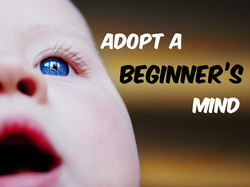 I am a beginner. Sure, I've been involved in some sort of Martial Art since I was 8 years old and I'm 38 now. But, in my mind I'm still a beginner. Beginner's don't have to be cool or claim to know everything. Beginner's don't get uptight when they make a mistake. Beginner's are always learning. They seem to have more fun, too. They aren't overly critical of themselves. They don't classify themselves as "good" or "bad." They are simply a beginner... someone who is in the present and there to learn. Beginner's love what they do regardless of how well they do it. Or, should I say, beginner's love unconditionally. This concept of being a beginner is really a mindset, a "beginner's mind." By adopting a beginner's mind, it opens you to learning without ego getting in the way. So often, as adults, we tell ourselves, "I know this! I should have done better! Anything I do should be done well or not done at all. Or, this is how I've always done it." A beginner's mind means temporarily throwing out all of your opinions, beliefs, logic and reason just for the sake of learning. It is okay to say, "I don't know." For this is the first step in learning something new. In the martial arts, an "I don't know" mind is the wisdom of the warrior. We don't allow ourselves to say "I don't know" often enough. This is because we always know, or we always think we know. Most of the time when we think we know, we don't really know at all. All we know are our past impressions of the situation that is happening now, the conclusions we came to in the past or judgments about similar events or circumstances that happened to us before. "I Don’t know" means keeping an open mind and responding according to circumstances, not according to how we assume things will be. Being a beginner means letting go of being an expert. We are all experts in something. We may think we are experts in our job, in raising children, in cooking a certain meal or in how we communicate with others. It’s difficult to let go of being an expert. Doing so means confessing that we really don't know anything. What we know belongs to the past. But this moment is new and offers its unique challenges. If I let go of being an expert, I can listen to others with an open mind. Then I can find that even a beginner has something to teach me. Beginners aren't afraid to fail. When we were children we were always starting something new. Then, as we go through our twenties, thirties, and further, we become more hesitant about being a beginner again. Why? Maybe it's because we don’t want to look silly when we fail. Having a Beginner's mind means it's okay to fall down, it's okay to fail and it's okay to laugh at ourselves when we make mistakes. Tell yourself (and others if they are watching), "I'm a beginner!" Then get up, dust yourself off, smile and immerse yourself in learning something new. A beginner's mind can transform the way one experiences life. It opens your mind to new possibilities and makes life fun. In the next section, I list some thoughts to meditate on to help maintain a beginner's mind. 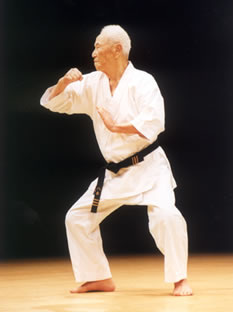 In the Okinawan dialect, there is no word for "retirement." Instead, they use a word called ikigai. Ikigai (pronounced ee-ki-guy) translates roughly to "purpose" or "that which makes one's life worth living." Okinawan's live with a sense of purpose, whether it be raising a happy healthy family, nurturing their vegetable garden, playing a musical instrument or practicing karate. Ikigai is something that brings enjoyment or fulfillment. It gives you a sense of satisfaction in what you are doing. It makes you happy to do it. Karate or the martial arts can be that for some people. I know it is for me! If karate is not your ikigai, it may give you the physical or mental tools to find the ikigai in your life and keep you physically ft enough to continue experiencing it. Your ikigai is the passion in life that drives you and that motivates you. It may be a hobby that you enjoy. It may be your job. It may be a sport that you participate in. It may be something that you create or express. The important thing is that it's something you enjoy doing so much that you can't imagine not ever being able to do it again. Knowing your ikigai is important. It one of the key traits that leads to longevity in life. And, the Okinawan's have a long history of living very long lives as they have one of the highest life expectancy rates in the world. In fact, Okinawa is considered a Blue Zone. Blue Zones are places in the world where people live to 100 and stay healthy. However, finding your ikigai can be hard work to figure out. You may need to do a lot of soul searching to find yours. Here are a few tips on how to find your own ikigai:
I consider myself a life-long practitioner of the martial arts. Like many other life-long martial artists, the study of karate is a way of life, a philosophy in living.
Initially, when a student starts taking karate classes it is usually for the reasons of self defense, physical health or the sport of it. But, if you choose to progress in the art you learn that karate is much more than that. It encompasses the mind, body and spirit of the practitioner. Humility, patience, self discipline, self control and poise are just some of the life benefits of karate-do. (The Way of Karate) All of these qualities are important to learn for a karate practitioner to advance in the art. An advanced martial artist is taught methods to seriously harm, maim or kill another human being. If a student does not posses a maturity or tempered spirit then learning these advanced techniques could be a danger to society and themselves. For this reason, warriors are held to a higher standard of living. As an instructor, I will only share advanced teachings to students who have proven their honor, humility and Integrity. My goal in life is to guide my students to be the best they can be. I am a facilitator that offers lessons in being an honorable warrior, a leader and a positive example to others. I take my role as instructor seriously. Everyday I strive to be a positive example and role model. I continue to learn and improve myself as well. Through the years down my own path in karate-do, I have come to believe eight philosophical principles. I feel that following these principles will lead to enlightened living.
|
AuthorVashon Borich-Leach, Sensei teaches traditional karate and tai chi in Branson, Missouri. She considers herself a life-time student of the arts. Her blog is an open journal of lessons learned in the martial arts. If you are a martial artist and would like to contribute to her blog please contact her. Archives
May 2023
Categories
All
©2012 Branson Karate & Kobudo™
|
©2010-2024 Vashon Enterprises LLC, DBA Branson Karate™
 RSS Feed
RSS Feed
